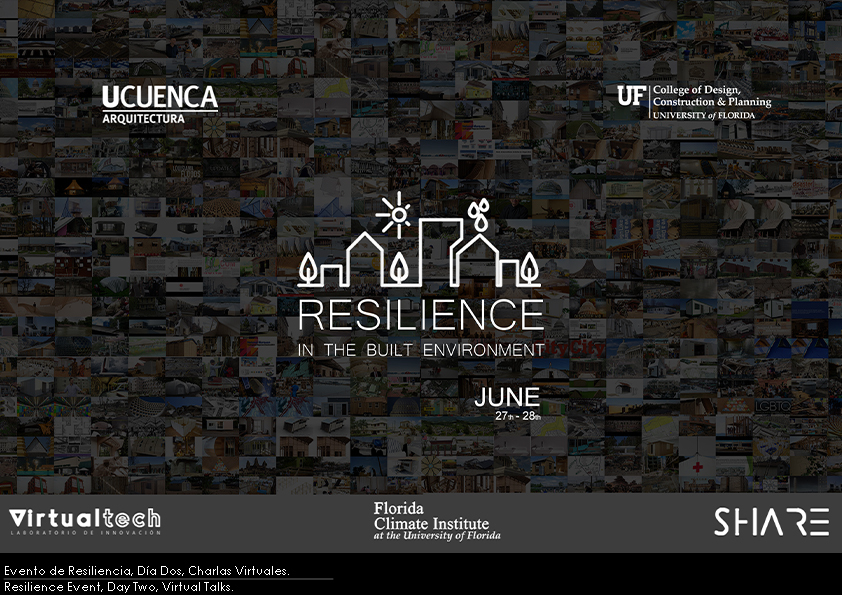"Resilience in the built environment" was the event held on June 27-28 by the research group of the School of Architecture and Urban Planning, Virtual Tec, together with the SHARE Research Laboratory of the University of Florida and with the support of the Florida Climate Institute.
Four lines of discussion were addressed in face-to-face and virtual mode in the following panels: key elements for a resilient and healthy environment in urban areas, tools for environmental management, community participation for resilient environments, and tools and methods in response to anthropogenic natural hazards.
The dean of the faculty, Alfredo Ordóñez, explained that the objective of the talks was to exchange knowledge and experiences that allow contributing ideas to face the challenges of sustainability of intermediate cities in the XXI century.
The concept of resilience in the built environment refers to the adaptability to the different changes that occur in the city or settlements, in a process of growth, said the representative of the University of Florida, Karla Saldaña Ochoa. Saldaña Ochoa summarized that they are the ways to design, project, and build better cities, thinking not only in mitigating the effects caused by a natural disaster, but in a future where the relationship of human beings with the environment is strengthened, and that is where the need for contributions from different areas such as architecture, engineering, construction, cultural heritage, urban planning and design, construction, etc., arises.
One of the organizers of the event, María Eugenia Sigüenza, professor at the University of Cuenca, pointed out that the results of the meeting included a series of guidelines to mitigate current problems in intermediate cities from various perspectives, with the cross-cutting theme of the need for multidisciplinary work and the linking of academia, citizenship and public administration to respond as a society to the problems and challenges of sustainability in the 21st century. She emphasized that the papers presented became spaces for joint reflection that allowed the consolidation of synergies for potential future work among the speakers, international exchanges, and the creation of networks. In this regard, Saldaña added that they are working on research projects that make use of artificial intelligence to enhance the implementation of resilience.
Rector María Augusta Hermida emphasized the need for interdisciplinarity in order to have the response capacity and relevance to face complex problems, being the application of fundamental concepts of resilience as a way to contribute with alternative solutions. As a contribution to the topic, the plan is to prepare a document containing the main aspects discussed during the two days of conversation and to hold a second meeting next year.
The speakers represented: FIBER University of Florida, SHARE Lab University of Florida, Shimberg Center University of Florida, URBSYS Lab University of Florida, VirtualTec University of Cuenca, LlactaLab University of Cuenca, World Heritage City CPM University of Cuenca, CitMov University of Cuenca, IERSE University of Azuay and Municipality of Cuenca, CGA. The event was attended by professionals and students from Ecuador, the United States, Spain, Germany, Iran, and Pakistan.

